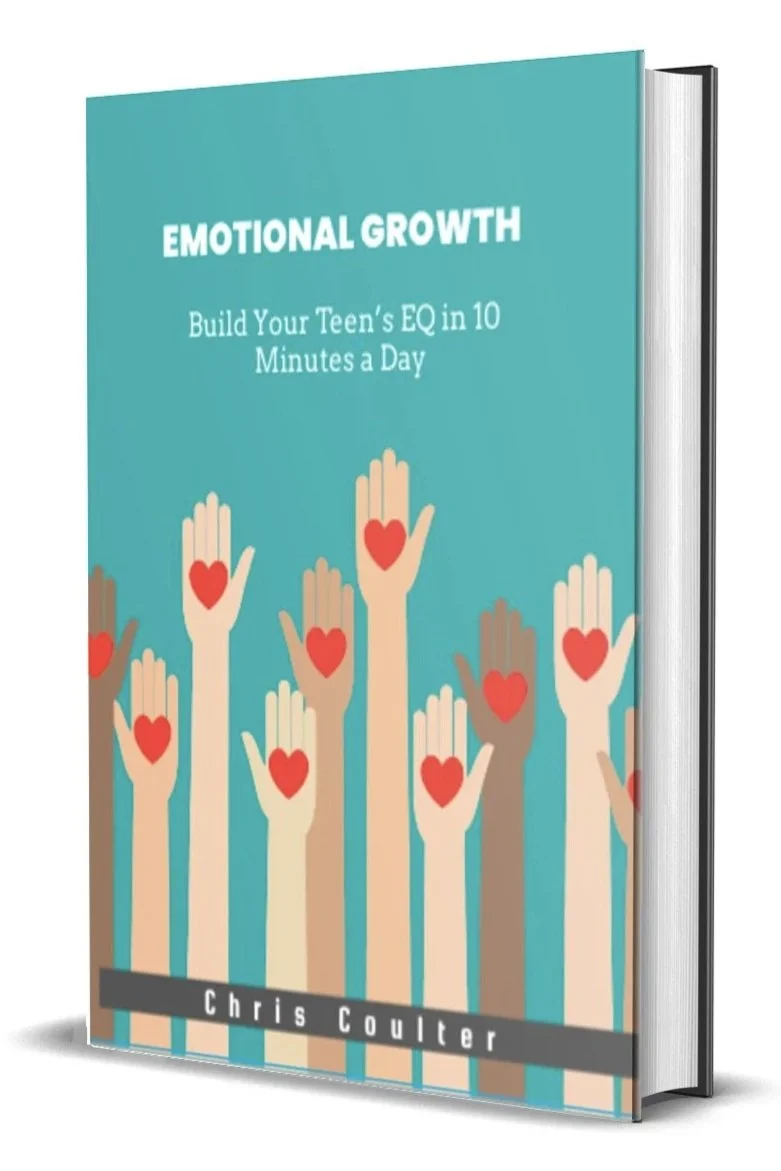Want Your Teen to Open Up? Don’t Be a Hannibal Lecture
Why Teens Do Not Open Up, and Why Parents Feel Shut Out
If you follow my posts, podcasts, webinars, or presentations, you already know the question I hear most from parents.
“How do I get my teenager to open up to me?”
I hear the opposite from teens.
“Every time I try to talk to my parents, they jump in with advice.”
This gap is real.
It is wide.
And it grows when families do not notice what is happening in front of them.
One of my first sessions with a new mentee, I asked, “How would you describe your relationship with your with your parents?”
”You mean ‘Hannibal Lecture’?”
I almost spat the water I was drinking on my laptop screen. That was the start of a great mentoring call. I asked if I could use that line.
They said yes, as long as I never mention their name.
I walked away with a great line and a great nickname.
But I also walked away with a reminder.
Teens are trying to tell us something.
Parents often do not know how to hear it.
What Parents Want
Parents want real connection with their kids.
They want their teens to talk, share, and trust them.
Most parents fear silence.
Silence feels like distance.
Silence feels like danger.
Parents often respond with advice because they think advice equals support.
It feels natural.
They want to fix the problem fast.
They want their kids to avoid pain.
But teens hear something different.
They hear correction.
They hear pressure.
They hear someone who is not listening.
And once a teen feels unheard, the door closes.
What Teens Want
Kids do not expect perfect parents.
They do not want perfect answers.
They want someone who listens.
Someone who does not judge them.
Someone who lets them finish a sentence.
Someone who creates a pause before responding.
This is what teens tell me in mentoring sessions.
They want a safe place to talk.
They want to say something and not feel wrong for saying it.
They want to explain how they feel without being told how to feel.
When this is missing, they look for support somewhere else.
Sometimes they pick friends who are also struggling.
Sometimes they stay silent.
Neither option helps them grow.
Where the Disconnect Happens
Parents talk with purpose.
Teens talk with emotion.
Different goals.
Different starting points.
Parents ask questions to gather information.
Teens share feelings to reduce pressure.
Parents want to move forward.
Teens need space to slow down.
This mismatch leads to frustration on both sides. Parents feel shut out.
Teens feel misunderstood.
And the cycle repeats.
Why The MentorWell Helps Bridge This Gap
The core of The MentorWell is simple.
Real listening.
Real connection.
Real understanding.
Our mentors are trained to create a calm space where teens feel safe.
No judgment.
No fixing.
No pressure.
We help teens talk through problems before they escalate.
We help them build confidence.
We help them sort through feelings that often overwhelm them.
Parents notice the change at home.
Better conversations.
More openness.
Less tension.
The MentorWell also supports parents.
We help them understand the cues their teen may be giving them.
We help them build healthier communication patterns.
We help them shift from advice mode to listening mode.
It changes the entire dynamic.
Where Families Move Forward
Stronger communication leads to stronger relationships.
It reduces conflict.
It builds trust.
It keeps problems from growing into crises.
Parents get a clearer picture of what their teen is facing.
Teens feel heard, valued, and less alone.
This is the work we do every day.
This is why The MentorWell exists.
If you want your teen to talk to you, the first step is simple.
Create space.
Listen fully.
Respond with care, not advice.
Teens open up when they feel safe.
They open up when someone gives them time, attention, and patience.
And when families need support to build that bridge, we are here.


